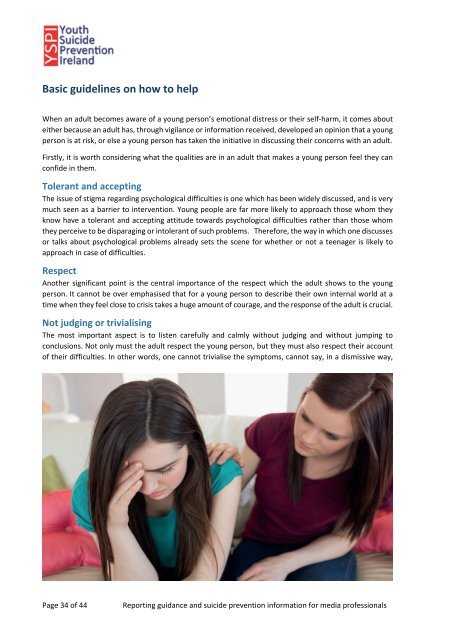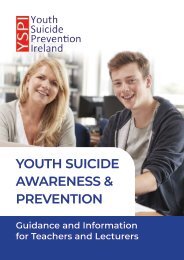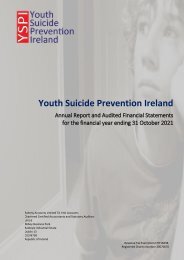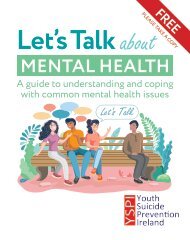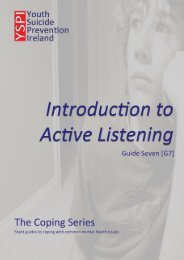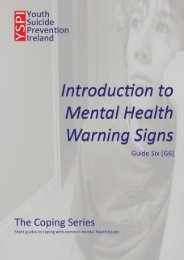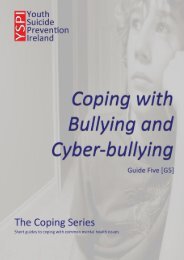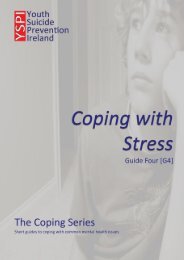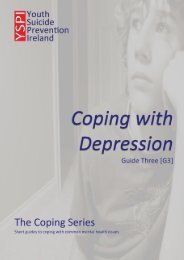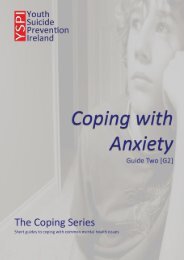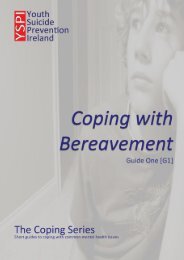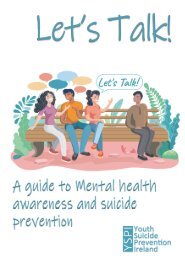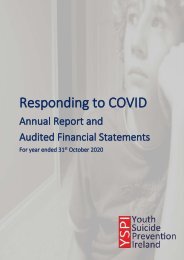You also want an ePaper? Increase the reach of your titles
YUMPU automatically turns print PDFs into web optimized ePapers that Google loves.
Basic guidelines on how to help<br />
When an adult becomes aware of a young person’s emotional distress or their self-harm, it comes about<br />
either because an adult has, through vigilance or in<strong>for</strong>mation received, developed an opinion that a young<br />
person is at risk, or else a young person has taken the initiative in discussing their concerns with an adult.<br />
Firstly, it is worth considering what the qualities are in an adult that makes a young person feel they can<br />
confide in them.<br />
Tolerant <strong>and</strong> accepting<br />
The issue of stigma regarding psychological difficulties is one which has been widely discussed, <strong>and</strong> is very<br />
much seen as a barrier to intervention. Young people are far more likely to approach those whom they<br />
know have a tolerant <strong>and</strong> accepting attitude towards psychological difficulties rather than those whom<br />
they perceive to be disparaging or intolerant of such problems. There<strong>for</strong>e, the way in which one discusses<br />
or talks about psychological problems already sets the scene <strong>for</strong> whether or not a teenager is likely to<br />
approach in case of difficulties.<br />
Respect<br />
Another significant point is the central importance of the respect which the adult shows to the young<br />
person. It cannot be over emphasised that <strong>for</strong> a young person to describe their own internal world at a<br />
time when they feel close to crisis takes a huge amount of courage, <strong>and</strong> the response of the adult is crucial.<br />
Not judging or trivialising<br />
The most important aspect is to listen carefully <strong>and</strong> calmly without judging <strong>and</strong> without jumping to<br />
conclusions. Not only must the adult respect the young person, but they must also respect their account<br />
of their difficulties. In other words, one cannot trivialise the symptoms, cannot say, in a dismissive way,<br />
Page 34 of 44<br />
<strong>Reporting</strong> guidance <strong>and</strong> suicide prevention in<strong>for</strong>mation <strong>for</strong> media professionals


